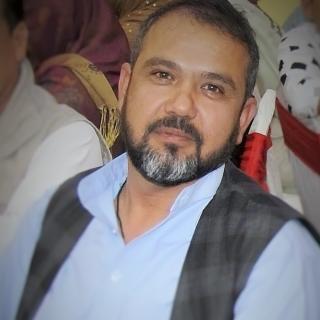Sayed Shah Agha was born on 1 June 1973 in Sheberghan, Jawzjan Province, northern Afghanistan. He went to primary school in the Ali Chopan neighbourhood of Mazar-i-Sharif (1979–1986), before attending the city’s Bakhtar High School (1986–1988). He then spent the next ten years working as a driver and mechanic in Mazar-i-Sharif.
In October 2000 Shah Agha applied for a position as driver and mechanic with the ICRC’s Mazar-i-Sharif subdelegation. He joined in March the following year. It was clearly a good fit for both parties, because Shah Agha would go on to spend the best part of two decades with the ICRC. He was conscientious, cooperative and unfailingly supportive of his transport team colleagues. He was someone they – and everyone else in the subdelegation – could count on.
On 8 February 2017, Shah Agha was part of an ICRC convoy delivering livestock feed when it was attacked by unidentified armed men near Sheberghan. Shah Agha, who was 43 and married, was killed along with five other colleagues: Ghulam Murtaza Omar, communications officer; Khalid Jan, economic security field officer; Ghulam Rasoul, driver; Ghulam Maqsoud, driver; and Najib Sahebzada, field officer. During the same incident, two other colleagues were abducted; they were held captive for seven months.
It is one of the worst tragedies in the history of the ICRC.
Speaking after the killings, Director of Operations Dominik Stillhart condemned what he described as a “horrific, senseless act” that had devastated so many lives and shaken the ICRC to its core.
“Alongside the profound sorrow that I feel, I am also filled with anger and outrage that someone would so brutally take the lives of our colleagues – colleagues who were dedicated to helping others. Nothing can justify their murder,” he said.
